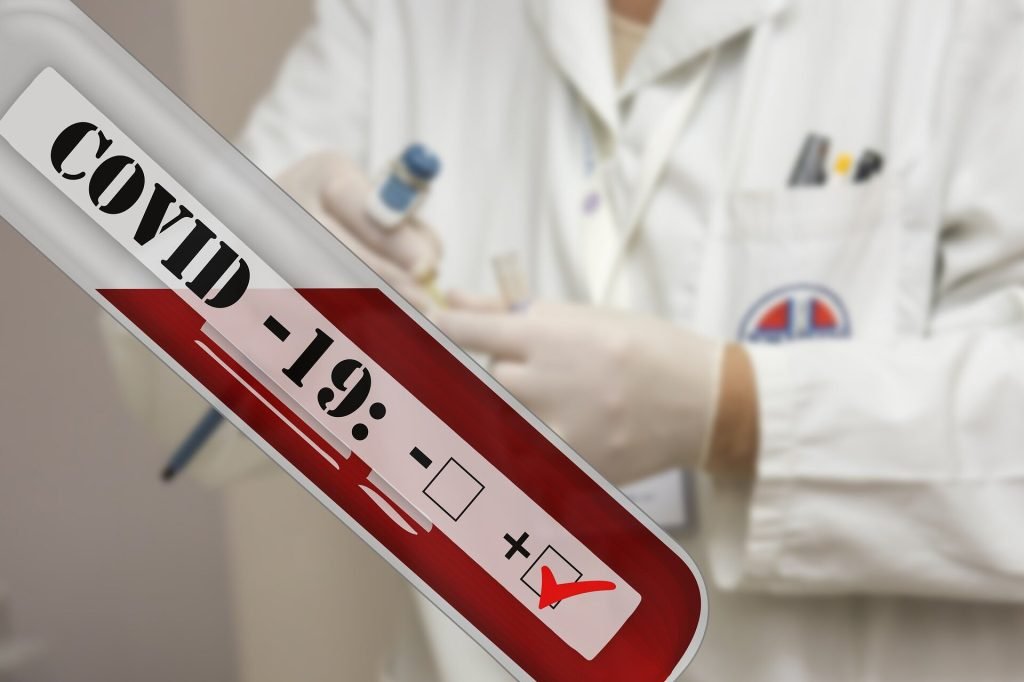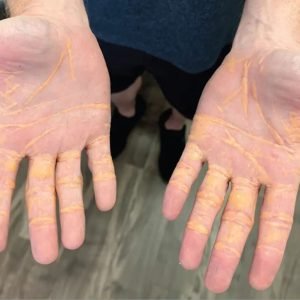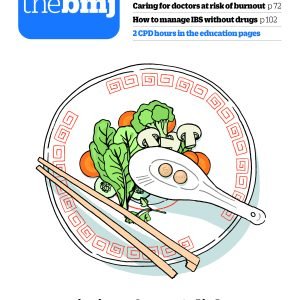
New research emphasizes the need for ongoing COVID-19 protection for people with weakened immune systems, with scalable tests helping identify those most at risk to enable tailored strategies.
The research, published in The Lancet, and involving experts from the University of Nottingham and Nottingham University Hospitals NHS Trust reveals how a simple blood test can predict the severity of COVID-19 infection, paving the way for personalized approaches to vaccination and better protection for those most at risk.
The MELODY Study (Mass Evaluation of Lateral Flow Immunoassays for the Detection of SARS-CoV-2 Antibody in Immunosuppressed People) explored how well at-risk individuals develop antibodies after at least three COVID-19 vaccinations. Antibodies are crucial for the body to fight off infection, but patients on immunosuppressive medications may respond less effectively to vaccines.
The MELODY Study is the largest of its kind, involving more than 28,000 participants. Immunosuppressed people are an often-overlooked group in COVID-19 research.
The study was led by experts at Imperial College London and senior joint author was Dr. Fiona Pearce from the Unit of Lifespan and Population Health in the School of Medicine at the University of Nottingham.
“The MELODY study illustrates the power and value of national disease registration enabling inclusion of groups usually excluded from research. It is a proud achievement that MELODY successfully recruited three immunosuppressed groups, including people with rare autoimmune rheumatic diseases,” says Dr. Pearce.
“Inclusion of this group of more than 6,000 people with rare autoimmune rheumatic diseases was made possible through the groundbreaking work of the RECORDER group at the University of Nottingham, in partnership with the National Disease Registration Service at NHS England. Until now, they had been unidentifiable and excluded from national research.”
Between December 2021 and June 2022, participants used home-testing kits that involved a simple finger-prick blood test to measure long-lasting antibody levels, employing methods pioneered through the REACT Study, one of the world’s largest and most comprehensive coronavirus monitoring studies. Unlike standard COVID-19 tests, these tests checked for immune protection.
The study found that 82% of the patients developed antibodies after vaccination. Those with detectable antibodies were less likely to contract the virus or require hospital care if infected.
Dr. Willicombe, Clinical Reader at Imperial College London and Honorary Consultant Nephrologist at Imperial College Healthcare NHS Trust, said, “Although it is really reassuring to see that most patients in this group responded well to vaccination, we know this approach can be less effective in some patients treated with certain immunosuppressive medication, and careful consideration in any protective strategies is required.
“MELODY has shown it is possible to individually assess vaccine response and the risk of severe outcomes following COVID-19 infection in this group. This information has the potential to support personalized approaches to COVID-19 prevention, such as individualized vaccination schedules or treatments, helping at-risk patients to benefit more equally from available public health measures.”
“This highlights why it is important that all people who are immunosuppressed should maximize their protection by staying up to date with all their eligible vaccinations including COVID-19 and flu,” says Dr. Peter Lanyon.
The findings underscore the importance of adapting health measures to meet the needs of vulnerable patients, ensuring everyone benefits from advances in medicine and public health.
More information:
Lisa Mumford et al, Impact of SARS-CoV-2 spike antibody positivity on infection and hospitalisation rates in immunosuppressed populations during the omicron period: the MELODY study, The Lancet (2025). DOI: 10.1016/S0140-6736(24)02560-1
Citation:
Personalized COVID-19 protection: Study finds scalable tests identify at-risk individuals (2025, January 24)
retrieved 24 January 2025
from https://medicalxpress.com/news/2025-01-personalized-covid-scalable-individuals.html
This document is subject to copyright. Apart from any fair dealing for the purpose of private study or research, no
part may be reproduced without the written permission. The content is provided for information purposes only.







